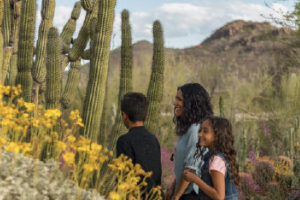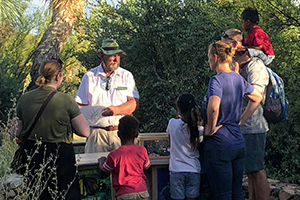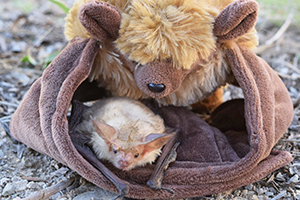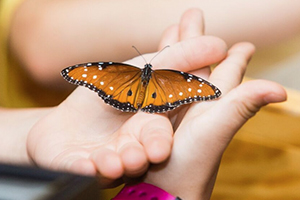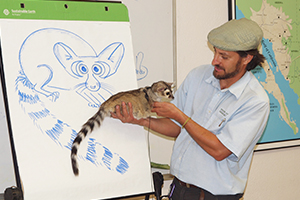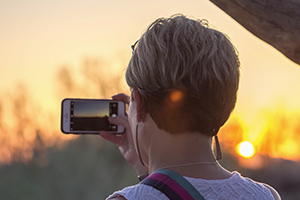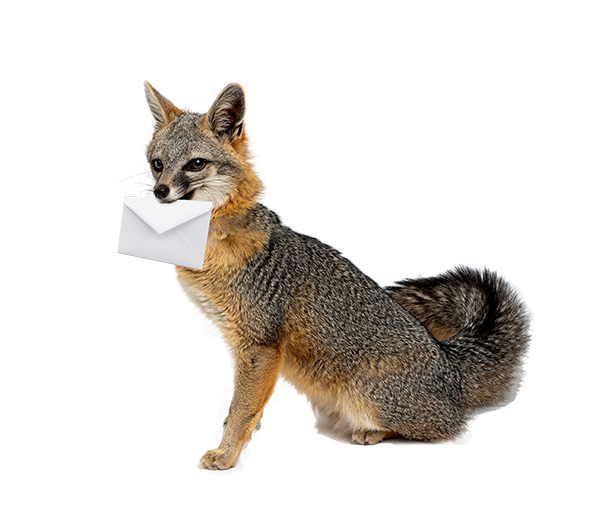Amigos del Desierto Program
January-May 2018
Desert Museum field trips for participating classes!
Desert Museum animals at a school family event!
Admission passes for families of students, staff and teachers!
Application Deadline: December 22, 2017
The Amigos del Desierto program can help you put more life into your K-5 Life Science curriculum by bringing live animals, plants and local experts into your classrooms. Your school will receive monthly outreach programs, free admission to the Museum for classes and families, and Desert Museum animals at a family science or other school event.
Outreach Classes
The Museum’s outreach van, the Desert Ark, will dock at your school up to 7 days between January and the end of school in May! You decide which classes/grades will most benefit, and we work with you to develop a schedule of visits. For example, you might want us to visit every class one time, or visit one or two grades multiple times. Please see the list of classes below.
School Family Event
Want to help families connect with nature? Want to attract more parents or families to a PTO meeting, or a family event at the school? We can set up an event booth with live animals and educational materials, or do an outreach program for your parent group. Our bilingual staff can converse with your English and Spanish-speaking families.
Free Field Trips
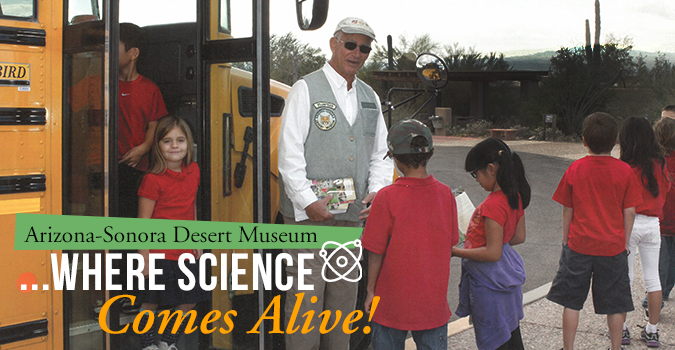
Up to 200 students can visit the Desert Museum for free during the Amigos semester (buses not included). Free field trips include parent chaperones (we ask for a 5:1 ratio)

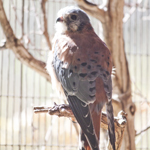
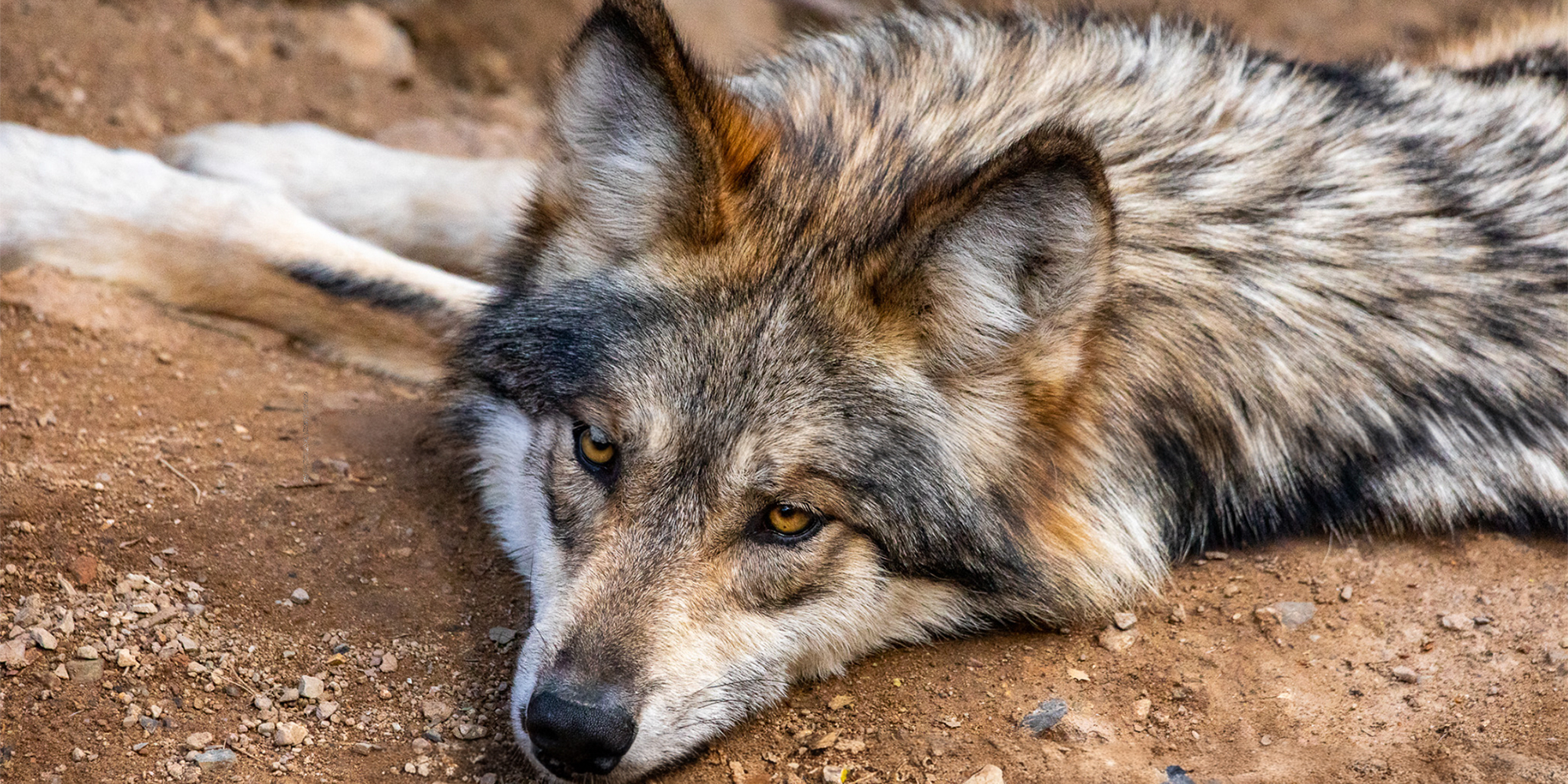
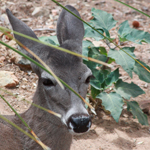
If you haven’t been to the Desert Museum, you may be surprised! Unlike most museums, about 85% of the experience is outdoors, and it features live desert animals in naturalistic enclosures. The Desert Museum is a zoo, botanical garden, art gallery, natural history museum, and aquarium! It is ranked on TripAdvisor.com as one of the Top 10 Museums in the country and the #1 Tucson attraction.
Serving schools since it opened in 1952, the Museum has 21 interpreted acres with two miles of walking paths through various desert habitats, 230 animal species, 1,200 types of plants and one of the world's most comprehensive regional mineral collections. Docents (volunteer teachers) are stationed throughout the grounds with interpretive kits and live animals.
You can choose from and download a variety of field guides to help focus your students’ learning during the trip, or make one of your own!
Family Passes
Students can bring their families back to the Museum, and share what they have learned! ASDM will provide free admission passes for up to 4 people for students, faculty and staff at the school. Passes can be redeemed through the end of the school year.
Eligibility: The Amigos del Desierto Program is for schools that…
…serve students in grades K-5
…want to help their students and families connect to nature, develop a deeper “sense of place,” and learn how to better live in harmony with the environment.
…want to enrich their students’ Life Science experiences.
…serve a low-income student population (>50% qualified for free or reduced lunch).
…are able to identify one or two contact persons for scheduling and logistics.
…are able to administer a short pre- and post-test at the beginning and end of the partnership.
…can distribute admission passes to families.
Contacts
Questions? Please contact Amigos del Desierto Coordinator: Jesús García: 520-883-3089, [email protected]
Reservations: 520-883-3025, [email protected]
Teaching Staff: Amy Orchard, Catherine Bartlett, Robin Kropp and Jesús García
Outreach Classes
- A Walk in the Desert (K)
- Let's take an imaginary walk through the desert to discover hidden animals and plants. While meeting some of these fascinating desert dwellers, students will identify the special adaptations each has for survival in the desert environment.
- Saguaro Tales (K-3)
- Discover the desert plants and animals that interact with the saguaro and meet the animals that depend upon this giant for shelter and food. Learn how the saguaro is adapted to life in the Sonoran Desert. Investigate pollination and seed dispersal to discover how the saguaro and other plants depend upon animals, and vice versa.
- Amazing Arthropods (1-5)
- Introduce students to the incredible diversity of Sonoran Desert insects, spiders, and other fascinating arthropods. Examine live animals and preserved specimens to learn about anatomy and adaptations. Determine the important roles of various arthropods in desert food chains, pollination, and our ecosystem.
- Adaptation Station (3-5)
- Desert plants and animals display a fascinating variety of adaptations that help them thrive here. Examine desert plants’ structures to reveal how they deal with the temperature extremes and aridity of this environment. Then meet some live desert animals and identify their secrets to success as desert dwellers.
- Sonoran Supermarket (3-5)
- Today, basic survival for most of us means regular trips to the supermarket. But imagine living in the Sonoran Desert five hundred years ago. Everything you needed came from right here. This program explores local resources that native peoples of the Sonoran Desert have traditionally used for food, medicines, fibers, and more. Students will experiment with ethnobotanical materials to make their own cordage and discover foods and tools they might find in their own backyards. (No live animals used in this program)
- Hunters and Hunted (3-5)
- Meet the carnivores of the desert and their prey. Study the skulls and body structures of these animals. Determine how predators are successful hunters, and how their prey is often able to escape!

